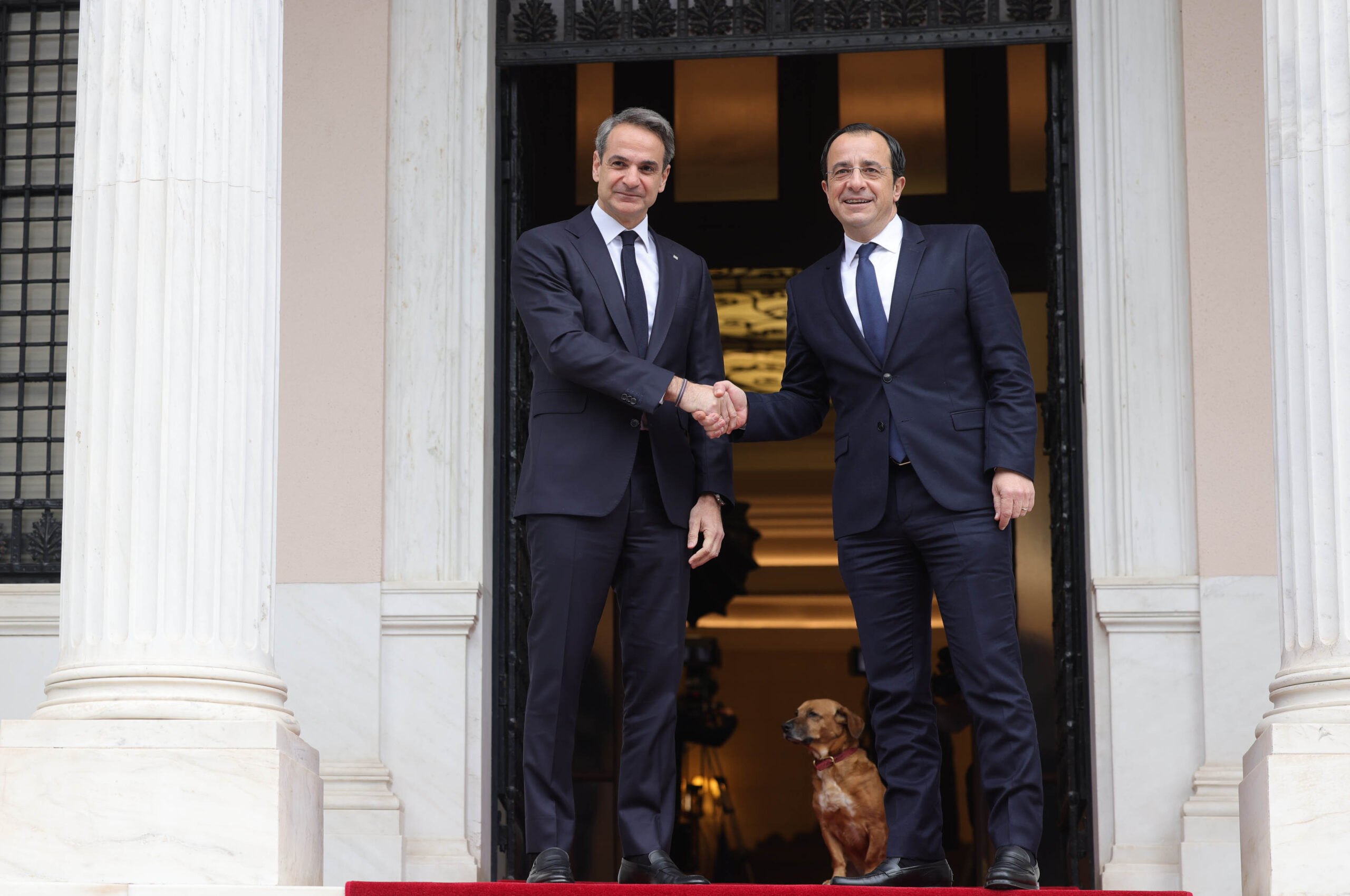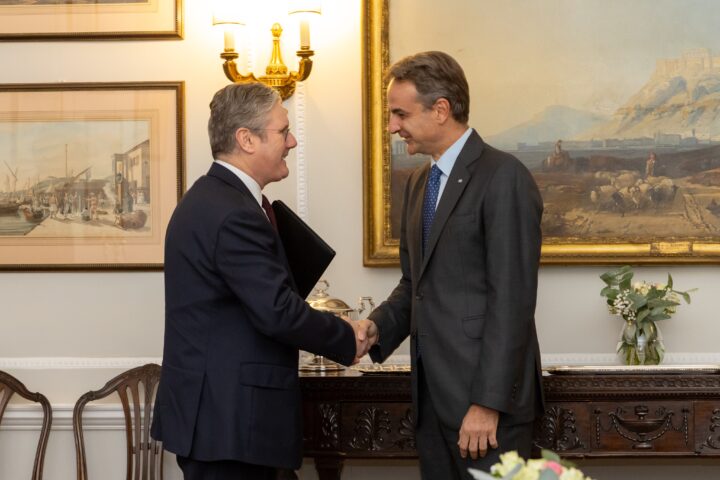President Nikos Christodoulides has personally congratulated Greek Prime Minister Kyriakos Mitsotakis for his party’s victory in Greece’s parliamentary elections.
He called Mitsotakis on Sunday evening and congratulated him on his success and that of his New Democracy party in the general election.
Mitsotakis said his conservative party unleashed a “political earthquake” with a thumping win at Sunday’s election as he seeks a new ballot to obtain an absolute majority to govern alone.
New Democracy was credited with 40.8% of the votes — a 20-point lead ahead of his nearest rival, leftist challenger Alexis Tsipras’ Syriza party, which garnered 20.1%.
Despite the clear win, the conservatives were short of a few seats for an outright majority, meaning that Mitsotakis had the choice of seeking a coalition or a new ballot for a decisive result.
The 55-year-old made clear his preference.
“The citizens want a strong government with a four-year horizon,” he said.
“Today’s political earthquake calls on all of us to speed up the process for a definitive government solution,” he added.
His rival Tsipras also set the stage for a new vote, saying, “the electoral cycle is not over yet”.
The next battle, he said, will be “critical and final”.
Mitsotakis, a Harvard graduate and former McKinsey consultant, had entered the elections as the favourite, with Greece enjoying fairly robust economic health.
Unemployment and inflation have fallen, and growth this year is projected to reach twice that of the European Union’s average — a far cry from the throes of a crippling debt crisis a decade ago.
With a post-Covid tourism revival lifting the country’s growth to 5.9% in 2022, Mitsotakis has campaigned on a pledge to build on the economic gains.
Exploit
Yet the fear that wages are not keeping pace with rising costs remains a key concern for voters — something his rival Tsipras sought to exploit.
But the result is a crushing blow to Tsipras, who has lost his fourth straight electoral battle to Mitsotakis after serving as premier from 2015 to 2019, during which he led rocky negotiations with creditors that nearly crashed Greece out of the euro.
Tsipras lost a third of his party’s 2019 percentage and, in some areas, trailed the third-ranked socialist party Pasok-Kinal, led by 44-year-old Nikos Androulakis.
Another casualty was Tsipras’ former maverick finance minister Yanis Varoufakis, whose anti-austerity MeRA25 party failed to make it to parliament.
Androulakis had been seen early on as a potential coalition partner for Mitsotakis, but things went sour when he discovered he had been under state surveillance — which is overseen by the prime minister’s office.
The wiretap scandal, which erupted last year, forced the resignation of the head of the intelligence service and a nephew of Mitsotakis, a top aide in his office.
While it sparked an uproar, the spying saga did not seem to have had much of an impact on the conservatives’ results, which were far better than the 6-8% lead pollsters predicted in the election run-up.
Anger over a train crash that claimed 57 lives in February also did not significantly impact the vote.
The government initially blamed the accident — Greece’s worst-ever rail disaster — on human error, even though the country’s notoriously poor rail network has suffered from years of under-investment.
Turnout reached only 58% as many had likely sat out the ballot given the anticipated second vote.










